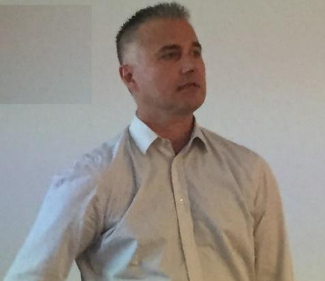Description of Activities
Blockchain has evolved into a transformational technology promising to offer secure, real-time transactions across different sectors and industries that will revolutionise the way we do business.
Impact on SMEs (1st Open Call)
Many of the proposed use case contributions continue to spring from our outreach to European experts within SDOs, companies and SMEs. The ISO/TC 307 WG6 programme
provides an active forum for SMEs to:
- Contribute and discuss EU technical initiatives on emerging international standards representing European values, ethics & regulations such as privacy (e.g.: privacy - GDPR/ eIDAS) and European green transition initiatives (e.g.: EBSI blockchain to create trusted digital audit trails).
- SMEs can gain the opportunity to understand the value of standards, via example use cases and models. The use cases provide insights and cross-domain example that can inform SMEs in their product development, and adoption of their technologies.
- Review international use cases and gain insights for EU participation in local markets, or in cross-border /sector issues.
- The Vienna Agreement enables ISO standards to be freely shared with CEN/CENELEC members, including SMEs.
Impact on SMEs (3rd Open Call)
This contribution has a wide impact for European SMEs. One example is where in my role as Convenor of ISO/TC307 WG6 Use Cases, we invite international SME experts to
get involved in regulatory and standards development processes by sharing their insights and creating use cases into emerging technologies.
This approach can enable faster adoption of their business and technical models, and for European SMEs, who create perspectives consistent with EU regulations and societies, such as privacy (GDPR, AI Act) and sustainability (Net Zero and ESG). (See section 2.1) In the lead-up to the ISO/TC 307 Plenary on 4 June 2024, we have gathered 10+ SMEs to showcase and present leading DLT solutions from SMEs, plus involvement in multiple SDO and entrepreneur events including Blockchain Ireland, INABTA etc.
Impact on SMEs (4th Open Call)
The contribution impacts European SMEs and/or European societies and decision-makers on a high level by developing technical standards in DLT/Blockchain that reflect European democratic values including.
- E-Privacy: EU Artificial Intelligence Act, new Data Act, GDPR
- Fintech and Def: MiCA crypto
- Sustainable initiatives: carbon markets, smart energy
- Interoperable platforms: EBSI, digital product passports
Moreover, I see two major impacts with SMEs. Firstly, international standards enable faster technical adoption for SMEs, as ISO standards provide ‘templates’ of technical systems and guidelines, that provide a baseline for SMEs to build their own solutions that are interoperable and lower risk for potential partners/investors.
Secondly, SME are involved in standards development: The use case methodology in ISO/TC 307 WG6 is based on active outreach to SMEs who are pioneering new DLT capabilities. They provide contributions to the standards through ISO/TC 307 WG6 and ongoing external business events.
Impact on society (1st Open Call)
The DLT/Blockchain technology is often referred to as ‘the technology of trust’. This ISO feature on my work at ISO/TC 307 and WG6 Use Cases explains the societal impacts of trust across supply chains, digital trust, data provenance, Energy trading, records management, Anti-counterfeit pharma and food safety and provenance.
Over recent years, blockchain has evolved into a transformational technology promising to offer secure, real-time transactions across different sectors and industries that will
revolutionise the way we do business. ISO is at the forefront of this technology to ensure that its users all speak the same language.
Impact on society (3rd Open Call)
This work sources use cases that can support societal impacts across international priorities such as Net Zero goals for climate change. They can support European values,
democracy, and human rights based on European societal regulations including:
- Privacy: new Data Act, GDPR
- Fintech and Defi: MiCA crypto regulations
- Sustainable initiatives: carbon markets
- Interoperable platforms: EBSI, digital passports,
- And in 2024 the EU Artificial Intelligence Act
Organization
Independent Consultant and technical expert in IT Innovation
Proposal Title (1st Open Call)
Develop scope and emerging requirements for new DLT and blockchain use-cases standards
Proposal Title (3rd Open Call)
Develop use cases to inform new standards development in DLT & blockchain technologies
Proposal Title (4th Open Call)
Develop an ISO Technical Report standard on innovative new & emerging DLT/Blockchain Use Cases
Standards Development Organisation



